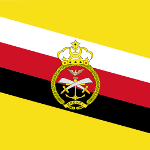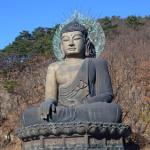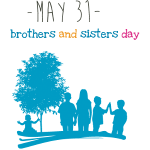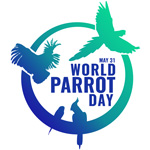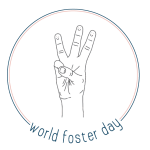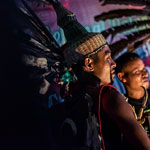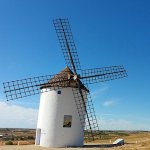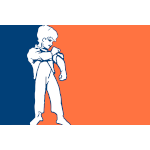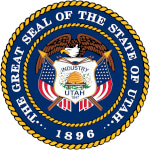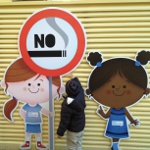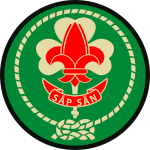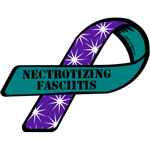Holidays Calendar for May 31, 2018
Brunei annually observes Royal Brunei Armed Forces Day on May 31. This is a public holiday, that celebrates the establishment of the Brunei Malay Regiment in 1961.
According to Buddhist tradition, at the age of 80, Siddhartha Gautama (Buddha) reached parinirvana, the final state after the death of the body that implies a release from the Saṃsāra, karma and rebirth. Most Buddhists celebrate Parinirvana Day that commemorates this event on February 8 or 15. However, in Bhutan it is celebrated on the 15th day of the 4th month of the Bhutanese calendar. It is also a public holiday in Mongolia, where it is known as Buddha Day.
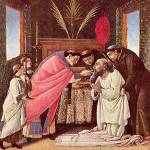 Religious Holidays →
Trinidad and Tobago,
Switzerland,
Spain,
San Marino,
Saint Lucia,
Seychelles,
Poland,
Monaco,
Liechtenstein,
Ecuador,
East Timor,
Germany,
Grenada,
Dominican Republic,
Brazil,
Croatia,
Austria,
Bolivia,
Colombia
Religious Holidays →
Trinidad and Tobago,
Switzerland,
Spain,
San Marino,
Saint Lucia,
Seychelles,
Poland,
Monaco,
Liechtenstein,
Ecuador,
East Timor,
Germany,
Grenada,
Dominican Republic,
Brazil,
Croatia,
Austria,
Bolivia,
Colombia
Corpus Christi
The Feast of Corpus Christi, also referred to as Corpus Domini, is a Latin Catholic movable feast celebrated on Thursday after Trinity Sunday (sixty days after Easter). It is observed as a public holiday in some countries.
Brothers and Sisters Day, also referred to as Siblings Day, is observed on May 31 in some European countries. It was launched by the European Large Families Confederation (ELFAC) to celebrate sibling bonds and relationships.
World Parrot Day is observed every May 31 to celebrate parrots and raise awareness about threats to these colorful and intelligent birds.
International Flight Attendant Day, also known as International Cabin Crew Day or World Cabin Crew Appreciation Day, is observed annually on May 31. It was created to celebrate civil aviation professionals who not only make sure that you’re comfortable during your flight, but even more importantly ensure your safety.
World Foster Day is celebrated annually on May 31. It was created to raise awareness of the benefits of foster care for both children and parents, and celebrate families in the fostering process.
Every website on the Internet – and there are more than 1 billion of them – has been designed by a web designer, whether they designed it from scratch or created a design template for amateur webmasters to use. Web design may be a relatively new industry, but its importance is hard to overestimate, so it is no surprising that web designers even have their own professional holiday. Web Designer Day is celebrated annually on May 31.
White Stork Day (Dzień Bociana Białego) is celebrated in Poland every year on May 31. It was created by local environmental activists to honor the bird, which in Polish culture is associated with spring, the countryside, childhood, and happiness.
Gawai Dayak (Dayak Day or Dayak Festival) is an annual festival celebrated by the Dayak people in the Malaysian state of Sarawak and parts of Indonesia on May 31 and June 1. It was created to celebrate the culture of the native people of Borneo.
Kaamatan (Pesta Kaamatan) is an annual harvest festival celebrated in parts of Malaysia on May 30 and 31 every year. Originally celebrated by the Kadazan-Dusun people, it has become one of the major national festivals of Malaysia.
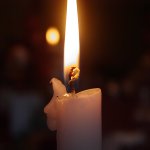 Anniversaries and Memorial Days →
Kazakhstan
Anniversaries and Memorial Days →
Kazakhstan
Remembrance Day of the Victims of Political Repressions and Famine in Kazakhstan
The Republic of Kazakhstan annually observes Remembrance Day of the Victims of Political Repressions and Famine of May 31. This is an official working memorial day.
Castilla–La Mancha Day (Día de Castilla-La Mancha) is the official holiday of the Spanish autonomous community of Castilla–La Mancha, celebrated annually on May 31. On this day in 1983, the Cortes of Castilla–La Mancha had its first session.
Bittereinders Day (Bittereinderdag, “Bitter Enders’ Day”) is an annual holiday celebrated on May 31 in the South African town of Orania. It commemorates Boer partisans who fought against the British Empire in the later stages of the Second Boer War.
National Utah Day is celebrated annually on May 31. It is an unofficial holiday established by National Day Calendar to recognize Utah as the 45th state to join the Union.
Macarons and macaroons may have the same origins, but these are two different type of cookie that shouldn’t be confused with each other. So when you celebrate National Macaroon Day on May 31, you should remember that it is dedicated to small coconut cookies that have been popularized by American Jews.
National Autonomous Vehicle Day is celebrated annually on May 31. It was created to raise public awareness of the autonomous vehicle industry and to promote advances in the industry and the amazing opportunities that these advances create.
World No Tobacco Day is annually observed on May 31 by many countries around the world. This observance was created by World Health Organization in 1987. During the years the celebration of this day is met both with enthusiasm and resistance.
Violation of women's rights is an acute problem in many countries around the world, including South Africa. Despite the legislative progress, many women in South Africa suffer gender inequality and can't find an appropriate job due to lack of skills. Annual campaign known as Take a Girl Child to Work Day is aimed at changing this situation.
Scouts’ Day in Vietnam is celebrated annually on May 31. On this day in 1993, former Scout leaders met in Hanoi in hopes of re-establishing the Vietnamese Scouting movement. Although they did not succeed, it was the first Scouting gathering in northern Vietnam in almost four decades.
Necrotizing Fasciitis Awareness Day, sometimes referred to as National Necrotizing Fasciitis Awareness Day, is observed annually on May 31. It was created to raise awareness of a rare skin infection that can develop very quickly and cause great harm if not treated immediately and properly.
Festivals for May 31, 2018
- Helen to the Atlantic Balloon Race in Helen, USA
- Narzissenfest in Bad Aussee, Austria
- Beat Film Festival in Moscow, Russia
- Zabaikalsky International Film Festival in Chita, Russia
- Encounters South African International Documentary Festival in Cape Town, South Africa
- Encounters South African International Documentary Festival in Johannesburg, South Africa
- Kyiv Book Arsenal in Kyiv, Ukraine
- BookExpo America in New York, USA
- Bookfest Bucharest in Bucharest, Romania
- London Fringe Theater Festival in London (ON), Canada
- Vienna Independent Shorts in Vienna, Austria
- Cincinnati Fringe Festival (Cincy Fringe) in Cincinnati, USA
- Festival St-Ambroise Fringe de Montréal in Montreal, Canada
- Kraków Film Festival in Kraków, Poland
- Molodist Kyiv International Film Festival in Kyiv, Ukraine
This Day in History
- 2024 Died: Robert William Pickton, also known as the Pig Farmer Killer or the Butcher, Canadian serial killer and pig farmer. He was attacked in prison by another inmate.
- 2024 Died: Marian Robinson, the mother of Michelle Obama, former first lady of the United States, and Craig Robinson, a basketball executive.
- 2010 Died: Louise Bourgeois, French-American sculptor and painter, an influential figure in modern and contemporary art. She is best known for her large spider sculptures, earning her the nickname the Spiderwoman.
- 2006 Died: Raymond Davis, Jr., American physicist and chemist, Nobel Prize laureate for the detection of cosmic neutrinos.
- 1996 Died: Timothy Leary, American psychologist and author, known as the advocate of psychedelic drugs. He conducted many experiments regarding the drug psilocybin and believed that LSD showed therapeutic potential for use in psychiatry.
- 1990 Born: Phillipa Soo, American actress and singer known for originating the roles of Natasha Rostova in Natasha, Pierre & The Great Comet of 1812 and Eliza Hamilton in Hamilton.
- 1986 Died: James Rainwater, American physicist, Nobel Prize for Physics laureate for determining the asymmetrical shapes of certain atomic nuclei.
- 1982 Died: Carlo Mauri, Italian mountaineer and explorer, a participant of many expeditions. He made several documentary films of his travels that became very popular.
- 1976 Died: Jacques Monod, French biologist and geneticist, Nobel Prize laureate for his discoveries concerning genetic control of enzyme and virus synthesis.
- 1976 Born: Colin Farrell, Irish actor. A leading man in blockbusters and independent films since the 2000s, he has received various awards and nominations, including a nomination for an Academy Award.
- 1973 The United States Senate voted to cut off funding for the bombing of Khmer Rouge targets within Cambodia. This decision hastened the end of the Cambodian Civil War.
- 1972 Born: Archie Panjabi, British actress best known for her role as Kalinda Sharma on The Good Wife, which earned her a Primetime Emmy Award in 2010.
- 1970 Born: Paolo Sorrentino, Italian film director, screenwriter, and author who is widely regarded as one of the most prominent contemporary Italian filmmakers.
- 1970 More that 47,000 people were killed when the Ancash earthquake that occurred off the coast of Peru in the Pacific Ocean caused a landslide in the town of Yungay.
- 1965 Born: Brooke Shields, American model, actress, and producer. She gained critical acclaim for playing the leading role in Pretty Baby at the age of 16.
- 1964 Born: Darryl Matthews McDaniels, known by his stage name DMC, American rapper and record producer. He is a founding member of the hip hop group Run-DMC, and is considered one of the pioneers of hip hop culture.
- 1949 Born: Tom Berenger, American actor who was nominated for the Academy Award for Best Supporting Actor for his portrayal of the Staff Sergeant Bob Barnes in Platoon.
- 1942 The Imperial Japanese Navy midget submarines began a series of attacks on Sydney in the course of World War II.
- 1941 Born: Louis Ignarro, American pharmacologist and academic, Nobel Prize laureate for his demonstration of the signaling properties of nitric oxide.
- 1935 40,000 people were killed when the city of Quetta, Pakistan was destroyed by a 7.7 magnitude scale earthquake.
- 1931 Born: John Robert Schrieffer, American physicist, Nobel Prize laureate for developing the BCS theory, the first successful microscopic theory of superconductivity.
- 1930 Born: Clint Eastwood, American actor, director, producer, and politician. He rose to fame with the role as the Man with No Name in the Dollars trilogy and as antihero cop Harry Callahan in the Dirty Harry films.
- 1929 The first talking Mickey Mouse cartoon, The Karnival Kid, was released.
- 1916 The Battle of Jutland between the Grand Fleet of the Royal Navy and the High Seas Fleet of the Imperial German Navy began. The largest battle of World War I, it has an indecisive outcome.
- 1911 Born: Maurice Allais, French economist, Nobel Prize laureate for his pioneering contributions to the theory of markets and efficient utilization of resources.
- 1909 The National Negro Committee convened for the first time to discuss African American civil rights. The committee became the forerunner of the National Association for the Advancement of Colored People (NAACP).
- 1887 Born: Saint-John Perse, French poet and diplomat, Nobel Prize for Literature laureate for the soaring flight and evocative imagery of his poetry. He served as a major French diplomat from 1914 to 1940.
- 1879 Gilmore's Garden in New York was renamed Madison Square Garden and opened to the public at 26th Street and Madison Avenue.
- 1873 Died: Joseph Grimaldi, English comedian, dancer, and entertainer of the Regency era. He expanded the role of the clown in the British harlequinade and designed the whiteface make-up.
- 1859 The clock tower at the House of Parliament, housing Big Ben, start keeping time.
- 1852 Born: Julius Richard Petri, German microbiologist, best known as the inventor of the Petri dish, a shallow cylindrical glass of plastic lidded dish used to culture cells or small mosses.
- 1819 Born: Walt Whitman, American poet and author, one of the most influential American poets. He is best known for his collection of poetry Leaves of Grass that used to be condemned as obscene.
- 1809 Died: Joseph Haydn, Austrian composer of the Classical period. He became a main figure in the development of chamber music such as the piano trio.
- 1683 Born: Jean-Pierre Christin, French physicist, mathematician, and astronomer, whose proposal to reverse the Celsius thermometer scale was widely accepted and is still in use today.
- 1594 Died: Tintoretto (born Jacopo Comin), Italian painter, a notable exponent of the Renaissance school. He was the author of such masterpieces as The Last Supper, Paradise, Miracle of the Slave.
- 1578 King Henry III laid the first stone of the Pont Neuf, the oldest bridge in Paris, France.
- 1567 Died: Guido de Bres, Belgian pastor and theologian. He compiled and published the Belgic Confession, a doctrinal standard document that is still used today by many Reformed Churches all over the world.
